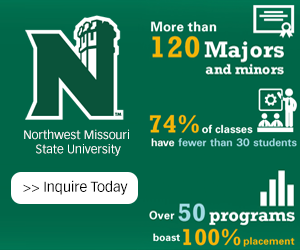Though broadcasting involves many types of media, the most common form that comes to mind is television. From news to sports coverage to the airing of fictional shows, television has captured the minds and imaginations of the world. In this article, we'll look at how to best suit your education to prepare you for a career in television broadcasting.
Despite the many connotations of the word “broadcasting,” the first thing that will often come to international students' minds when they hear it is the classic picture of a television reporter covering some exciting developing story for the world. Due to its romanticized nature and high exposure, television broadcasting is one of the most popular broadcasting fields there is. In school, television broadcasting programs can set you up with the general skills you need to succeed while allowing you to study sports broadcasting, broadcast journalism, or other niche disciplines to specialize your expertise even further.
Wide Variety of Career Options
One of the advantages of television broadcasting is the broad range of genres and jobs it covers. While the unflagging news reporter may be who international students remember, television employs a wide variety of positions both in front of and behind the camera. For the tech whiz, there is plenty of work helming video and audio recording equipment, managing and editing footage, and even overseeing the actual broadcast signal of anything that goes to air. For the creative or managerial types who'd rather not have to put on their best face every day, work as a writer, news researcher, or producer means playing a big role in the broadcast without stepping in front of the camera.
Covering a Range of Topics
The best television broadcasting programs give international students the opportunity to study any and all of these different subjects. Take for example, The Academy of Radio & Television Broadcasting. International students have the opportunity to go behind the scenes and train on industry equipment, direct and produce commercials and shows, learn to shoot on location and in the studio, and even get exposure in front of the camera doing reporting, on campus talent training and even script writing. Even if you already know your exact calling within television broadcasting, at least a basic level course in each relevant skill is required by most schools. So yes, the aspiring sound engineers out there will likely have to take a class in onscreen reporting, for example. Just know that these seemingly superfluous classes give you a deeper understanding of television broadcasting and help you master your own chosen job – the sound engineer, for example, will get better at his job if he understands how the reporter being recorded does his job too!
Focusing on Television
More delicate is the balance of television and non-television broadcasting classes for international students not actually in dedicated television broadcasting programs. The additional skills and theories learned about other broadcasting mediums – radio, the internet – in an overall major like “broadcast communications” can certainly be relevant to television broadcasting as well. But if you're in such a major and already know that television broadcasting is definitely your thing, do yourself a favor and focus your energy and electives into the classes that apply directly to television as much as possible.
Finding Your Niche
Moving in the other direction, a more specific option for international students in television broadcasting programs is to study sports broadcasting, broadcast journalism, or other niches within the broader jurisdiction of television. Many schools will not have a separate program or even concentration for these topics; students who want to study sports broadcasting, for example, often just enter a general broadcasting major and focus their classes and extracurricular involvement on sports specifically. Another possible way to break into these television broadcasting niches is to move further away from a broadcasting program and develop expertise in the specific niche instead – major in sports science for the aspiring sports broadcaster, international relations for the aspiring political news broadcaster, and so on. While this develops strong knowledge of the field in question, it leaves out the many unique skills that television broadcasting demands, so make sure you bolster the choice with interdisciplinary electives in at least basic broadcasting skills like reporting, newswriting, producing, or editing.
Television broadcasting is a stimulating, varied field, offering the archetypal career in news broadcasting but also much, much more. With so many ways to use college to master television broadcasting skills and knowledge, a great start in the field is within reach of any student!

